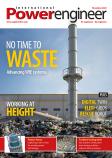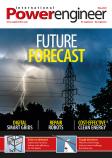Dulas has launched its Remote Renewable Energy Survey Service for public bodies throughout the UK. The service, which utilises light detection and ranging (LiDAR) and geographic information system (GIS) mapping, remotely assesses sites’ suitability for integrated renewable energy and provides public sector bodies with a pre-feasibility report analysing the potential to reduce their carbon emissions.
A recent report by the Solar Trade Association (STA) outlined the opportunities available to local authorities, in particular, for the development of successful solar projects, including excellent terms of borrowing, long project timescales and secure off-takers for the power generated. However, while local authorities also benefit from easy access to council-owned land and roof space, maximising the profitability of prospective schemes remains essential in the absence of national subsidy supports.
The new service provided by Dulas complements the advantages set out by the STA by analysing the potential to offset local energy demand and reduce carbon emissions through the selection and appraisal of suitable locations for ground- and roof-mounted solar and other clean energy sources across a given area. It then draws on LiDAR satellite data to gather information on the height of objects including buildings and vegetation to generate highly detailed terrain models.
Significantly, this approach enables Dulas’ consultants to carry out the analysis remotely, saving time and costs associated with multiple site visits and assessing a large area with multiple buildings.
“In the absence of national supports for the sector, STA research suggests that local authorities have an excellent opportunity to take the lead in rolling out affordable solar schemes that bring the economic benefits of this technology to their communities,” said Ruth Chapman, Head of Consultancy at Dulas.
“By employing cutting-edge technologies such as LiDAR and GIS, and working in partnership with local authorities to understand their ambitions and objectives, we offer a sophisticated, reliable and cost-efficient means of assessing the potential for all forms of renewable energy – including solar – that is locked up in local authority land and infrastructure.”
In addition to local authorities, Dulas recently demonstrated and delivered the service on behalf of the University of Chester’s Faculty of Science and Engineering, assessing a 66-acre site to deliver an understanding of its potential for on-site integrated solar electricity generation and reduction of its carbon footprint. Following the incorporation of LiDAR data within its GIS modelling, Dulas was able to select suitable roof spaces and carport sites for solar arrays, accounting for orientation, slope and likely irradiance levels.
The study found that solar arrays installed on roofs and car ports could supply 20% of the electricity requirements for the entire site, while the rates of return and payback periods for the PV potential were also found to be commercially attractive.
















